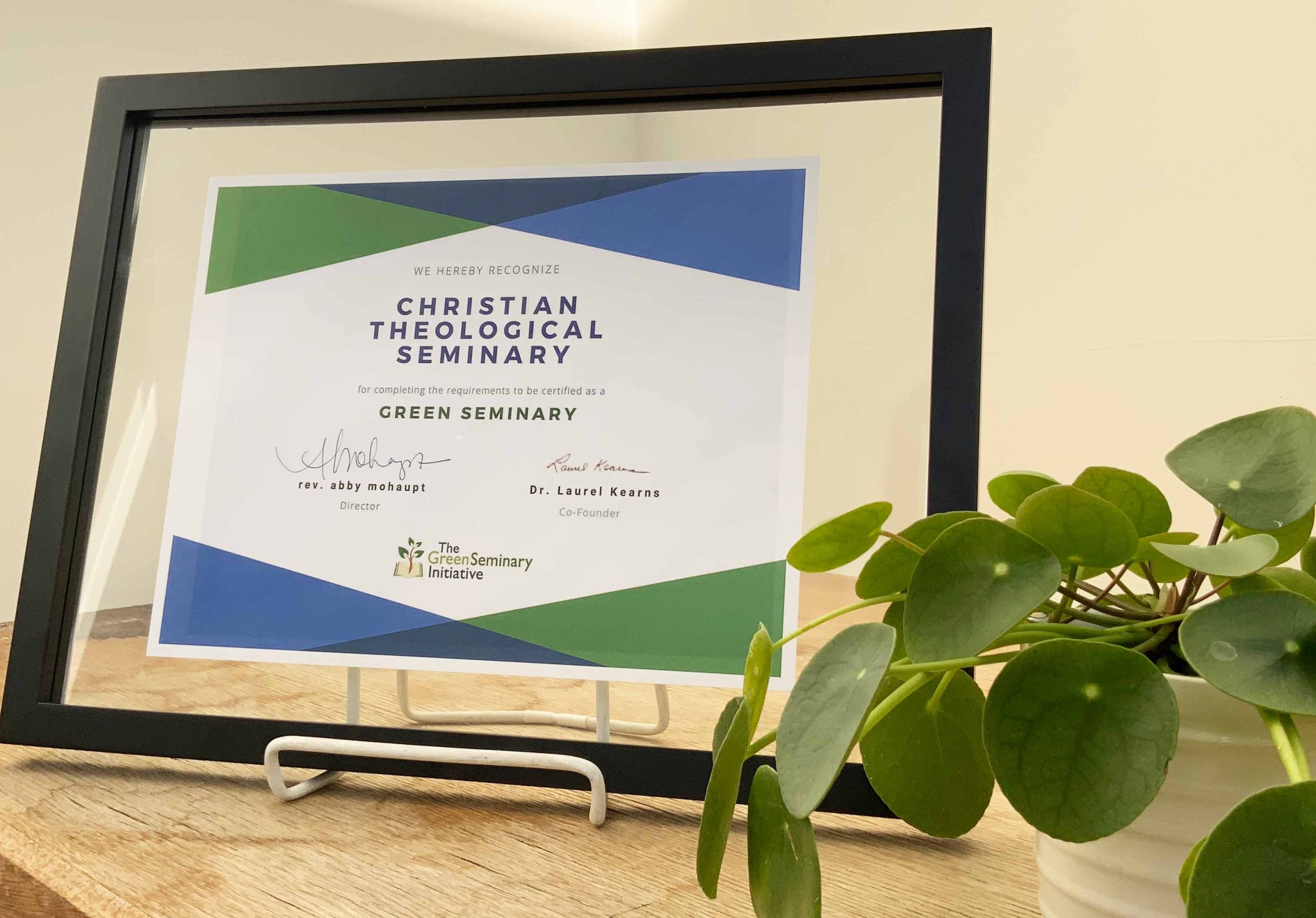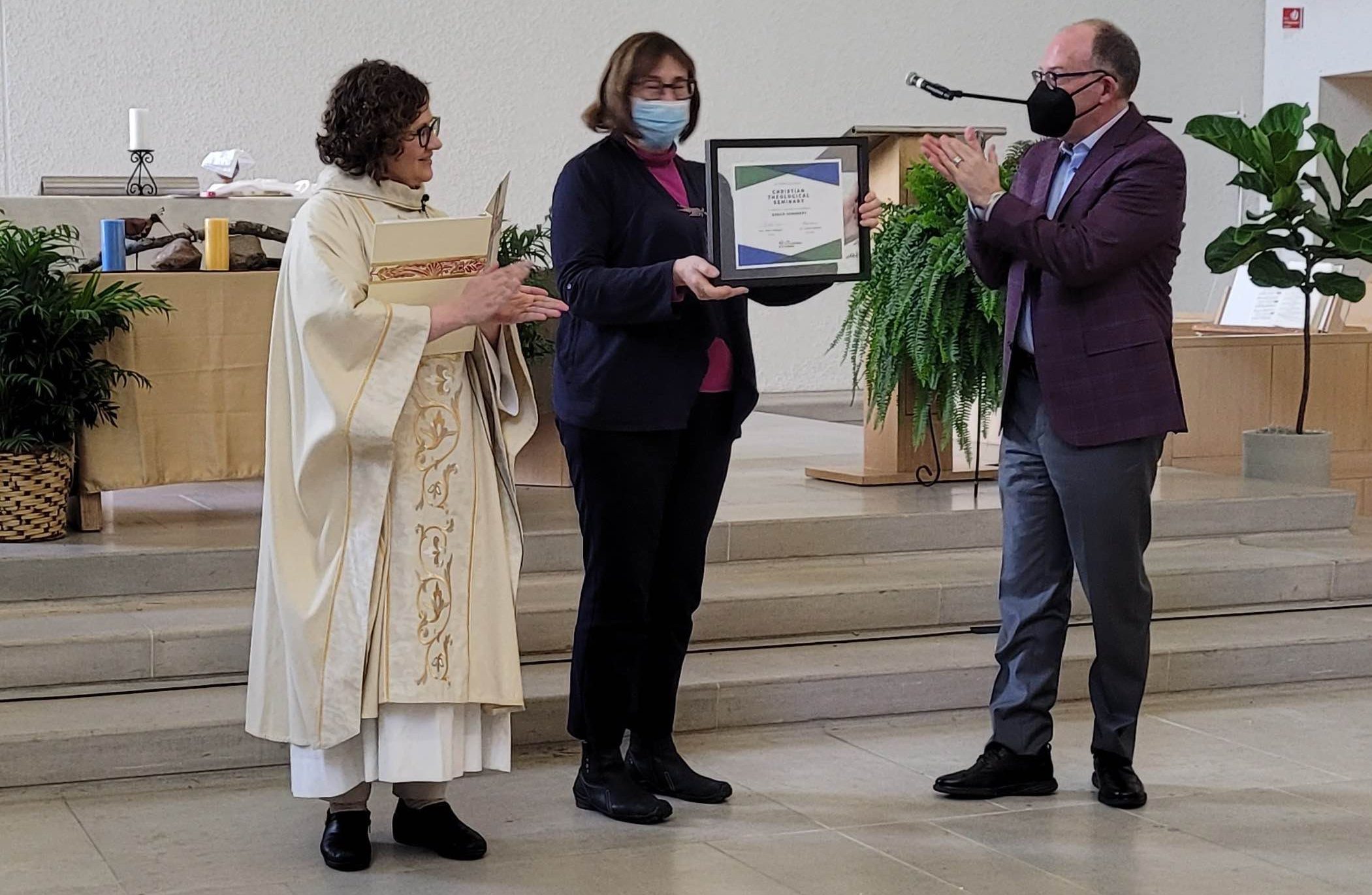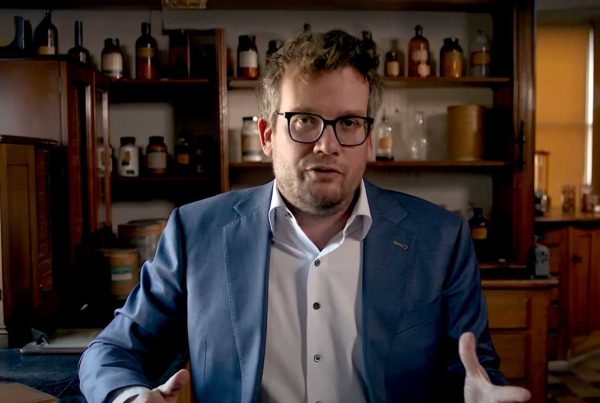CTS recently learned from The Green Seminary Initiative and GreenFaith of its official status as a certified Green Seminary. CTS received this certification in recognition of the hard work it has undertaken in recent years “to put forward ecological priorities” in its curriculum and day-to-day operations.
With this certification, CTS joins a small group of seminaries leading the way in eco-justice and care for the environment. President David Mellott celebrated the certification: “This is a great moment in the life of our community, and I am incredibly grateful for the commitment and hard work of the CTS Green Team. Their work has been and continues to be a vital part of how CTS lives out our core values of working toward justice for all and promoting healing and wholeness throughout God’s creation.”

CTS has been working toward this certification since 2016, when Prof. Felicity Kelcourse initiated the process with members of the faculty, staff, and student body. This led to the formation of the CTS Green Team, which is now led by Kelcourse and Prof. Amy Lindeman Allen.

The Green Seminary Initiative, the organization that started the certification program, “is premised on two convictions: The first is that the religious community has a unique and significant calling to turn back human-caused environmental destruction and to participate in bringing all of creation into health and wholeness. The second conviction is that theological schools should provide clergy and religious leaders with the tools necessary for them to lead their congregations, communities and organizations in meeting their unique call to protect and restore creation.”
“From the beginnings of creation to John of Patmos’ vision of creation renewed, with a tree of life standing at the center of the holy city, Christian Scripture is rooted in reverence for the natural world,” Lindeman Allen said. “As a seminary community, we take seriously what it means to live in and among God’s good creation. Receiving the green seminary certification is a milestone that acknowledges the ways in which we have begun to incorporate these commitments into our communal life as a seminary and, at the same time, serves as an encouragement as we continue to deepen our ecological commitments in the ways in which we live, learn, and worship together.”





